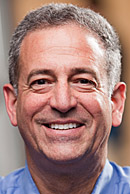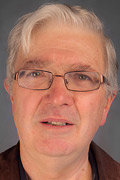Former U.S. Senator Russ Feingold will spend part of the Fall Term at Lawrence University as the college’s 2012-13 Stephen Edward Scarff Distinguished Visiting Professor.
The Scarff professorship was established in 1989 by Edward and Nancy Scarff in memory of their son, Stephen, a member of the Lawrence class of 1975, who died in an automobile accident in 1984. It brings civic leaders and scholars to Lawrence to provide broad perspectives on the central issues of the day.

Feingold received an honorary Doctor of Humane Letters degree from Lawrence in 2011 and spoke as part of the college’s 1994-95 convocation series.
During his Scarff appointment, Feingold will present guest lectures for the courses “Introduction to International Relations,” “International Politics” and others. He also will deliver a public address and participate in a weekend retreat with students at Björklunden, Lawrence’s 425-acre northern campus in Door County.
“We are extremely pleased that Senator Feingold will be able to offer his insights and wisdom directly to Lawrence’s students,” said Provost and Dean of the Faculty David Burrows. “His experience in government will complement our programs that stress the theoretical analysis of political systems with actual examples of how our politics works in contemporary life. His commitment to improving the living conditions of our citizens is a fine example of civic engagement and will serve as a helpful model for students, faculty and staff.”
One of Wisconsin’s highest-profile elected officials, Feingold spent 28 years in public service as both a three-time state senator (1982-92) and U.S. Senator (1994-2010). During his 18 years in Congress, Feingold established himself as one of the U.S. Senate’s most independent voices. He was the lone senator to vote against the Patriot Act in 2001, opposed President Obama’s decision to expand the war in Afghanistan, was the first senator to propose a timetable to exit Iraq and fought against NAFTA and other financial deregulation and trade agreements he considered unfair.
“I could not be more pleased to be working with the students at one of the great pillars of education in Wisconsin, one that has produced some of Wisconsin’s strongest civic leaders,” said Feingold.
In 2011, Feingold accepted a visiting professor appointment at Marquette University Law School to teach the courses “Current Legal Issues: The U.S. Senate” and “Jurisprudence.”
Feingold also was named the inaugural Mimi and Peter Haas Distinguished Visitor at Stanford University during the winter quarter of 2012 and will return to Stanford Law School to teach in 2013.
He is the author of the New York Times’ best-selling book “While America Sleeps,” which examines the challenges America faces as a nation since the 9/11 terrorist attacks. In 2011, Feingold founded Progressives United, a grassroots organization designed to counter corporate influence in politics.
A native of Janesville, Feingold graduated from the University of Wisconsin in 1975 and earned a law degree in 1977 from Oxford University as a Rhodes Scholar. He returned to the states and earned a law degree from Harvard Law School in 1979. Feingold practiced law in Madison from 1979-85.
Feingold is the 18th person named Lawrence’s Scarff Professor. Previous appointments include McGeorge Bundy, national security adviser to presidents Kennedy and Johnson; Rev. William Sloane Coffin, Jr., former chaplain at Yale University, noted civil rights advocate and peace activist; and Takakazu Kuriyama, former Japanese Ambassador to the U.S.
About Lawrence University
Founded in 1847, Lawrence University uniquely integrates a college of liberal arts and sciences with a world-class conservatory of music, both devoted exclusively to undergraduate education. Ranked among America’s best colleges by Forbes, it was selected for inclusion in the book “Colleges That Change Lives: 40 Schools That Will Change the Way You Think About College.” Individualized learning, the development of multiple interests and community engagement are central to the Lawrence experience. Lawrence draws its 1,450 students from nearly every state and more than 50 countries. Follow Lawrence on Facebook.
